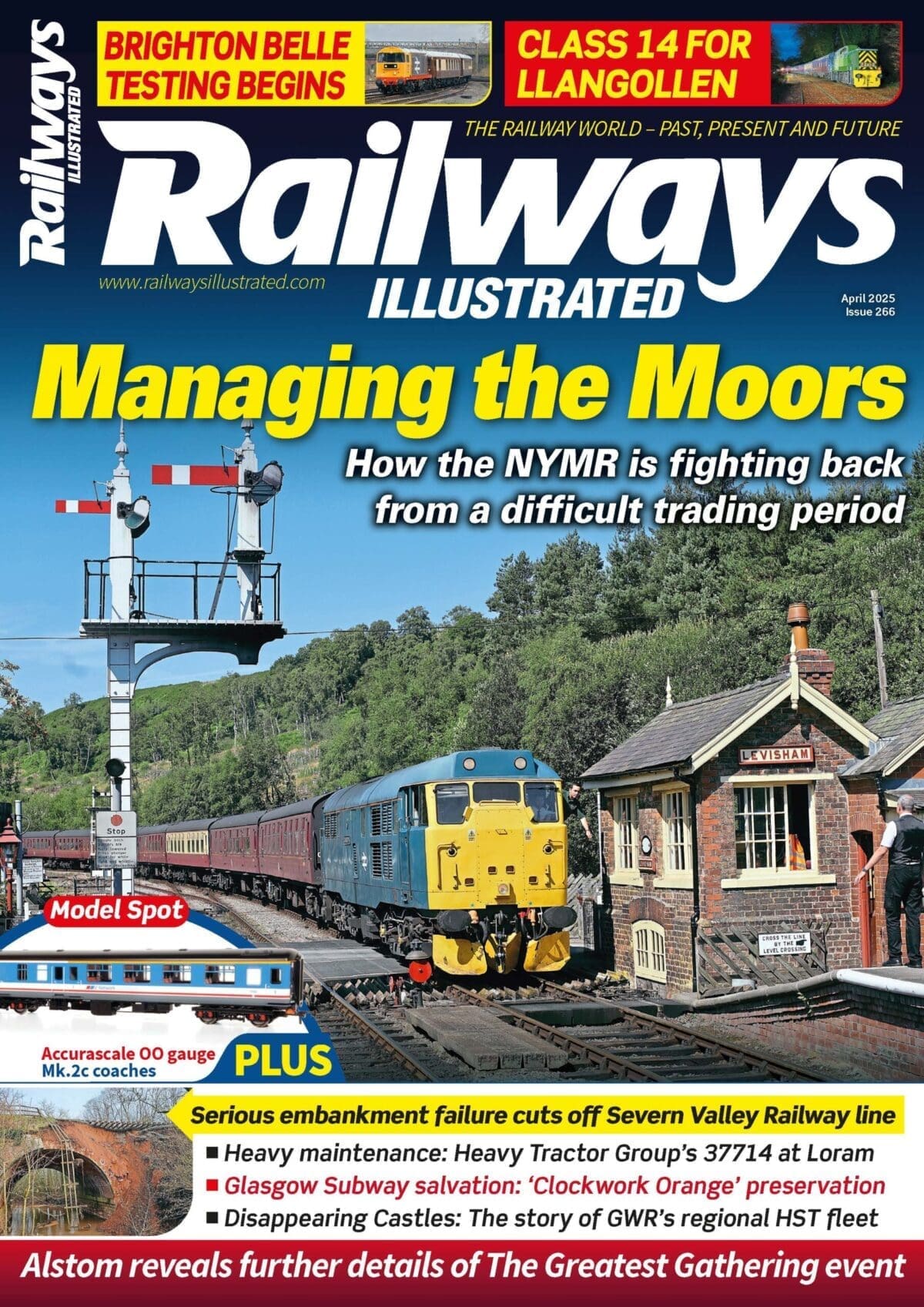The world’s first railway station is among the sites added to a list of heritage at risk, an annual update shows.

Government heritage agency Historic England has published its 2024 Heritage at Risk Register, which shows that 155 sites have been added to the list over concerns about neglect and decay.
Among the sites added to the list is Heighington and Aycliffe Railway Station in Newton Aycliffe, County Durham, which dates from 1826 and is considered to be the world’s first railway station.
Enjoy more Railways Illustrated Magazine reading every month.
Click here to subscribe & save.
The railway station has been added to the list as it has become derelict.
Last year, it was discovered that Heighington and Aycliffe Railway Station is older than initially thought.
The building was first thought to date to the mid-1830s. However, research by Friends of the Stockton & Darlington Railway and Historic England, found that the building was completed in 1827.
This made the building older than the Liverpool Road Station, opened in 1830, which had previously been thought of as the earliest example of a railway station in the world.
Other sites added to the register include Tamworth Castle in Staffordshire, a Grade I listed motte-and-bailey fortification that needs extensive repair, Victorian glasshouses at Somerleyton Hall, Suffolk, thought to be by Sir Joseph Paxton, the designer of the Crystal Palace, and the Roman Painted House in Dover, Kent, the remains of an early 3rd century building unearthed in the 1970s with large masonry walls, an underfloor heating system and areas of intact painted wall panels in red, green and yellow.
The register highlights heritage at risk of neglect, decay or inappropriate development across England, with 4,891 entries on the register in 2024, and supports work to protect and conserve them.
However, there is better news for some sites, as 124 are removed from the register following conservation efforts.
Among these is the Goods Shed in Darlington, County Durham, which was built in 1833 and is thought to be the oldest surviving building of its type, which has been repaired and redeveloped as a visitor attraction.
Heritage minister Sir Chris Bryant said: “The UK has an abundance of heritage sites across the country that attract tourists and provide jobs in local communities.
“Many of these are in desperate need of support.
“The Heritage at Risk Register plays a vital role in our ongoing mission to protect and preserve our rich heritage across the country.”
Duncan Wilson, chief executive of Historic England, said: “This year, we have seen partners and communities come together to help save the historic buildings and places that need it the most.
“It’s inspirational to see how we can harness the power of our heritage to benefit local people.”





